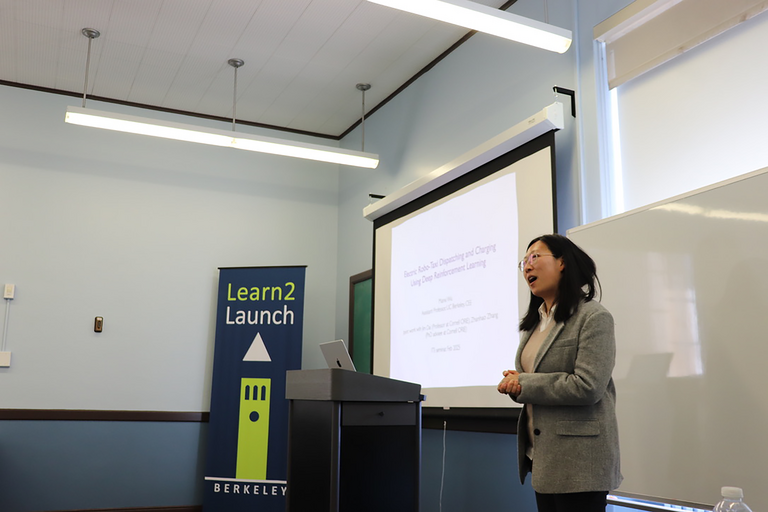Thank you to Manxi Wu, Assistant Professor in the Civil and Environmental Engineering department at University of California, Berkeley, who presented Atomic Proximal Policy Optimization for Electric Robo-Taxi Dispatch and Charger Allocation at the Institute of Transportation Studies Transportation Seminar on Friday, Feb. 21, 2025.
Abstract: Pioneering companies such as Waymo have deployed robo-taxi services in several U.S. cities. These robo-taxis are electric vehicles, and their operation requires the joint optimization of ride matching, vehicle repositioning, and charging scheduling in a stochastic environment. As the fleet size grows, the dispatching is challenging as the set of system state and the fleet dispatching action set grow exponentially with the number of vehicles. To address this, we introduce a scalable deep reinforcement learning algorithm, called Atomic Proximal Policy Optimization (Atomic-PPO), that reduces the action space using atomic action decomposition. We evaluate our algorithm using real-world NYC for-hire vehicle data and we measure the performance using the long-run average reward achieved by the dispatching policy relative to a fluid-based reward upper bound. Our experiments demonstrate the superior performance of our Atomic-PPO compared to benchmarks. Furthermore, we conduct extensive numerical experiments to analyze the efficient allocation of charging facilities and assess the impact of vehicle range and charger speed on fleet performance.
Bio: Professor Manxi Wu is an Assistant Professor in the Civil and Environmental Engineering department at University of California, Berkeley. Previously, she was an assistant professor at Cornell University Operations Research and Information Engineering (2022 - 2024), research fellow at the Simons Institute for the Theory of Computing, and postdoctoral researcher at EECS, Berkeley (2021- 2022). She completed my PhD in 2021 from the Institute for Data, Systems, and Society at MIT. She holds a M.S. in Transportation from MIT, and a B.S. in Applied Mathematics from Peking University.









